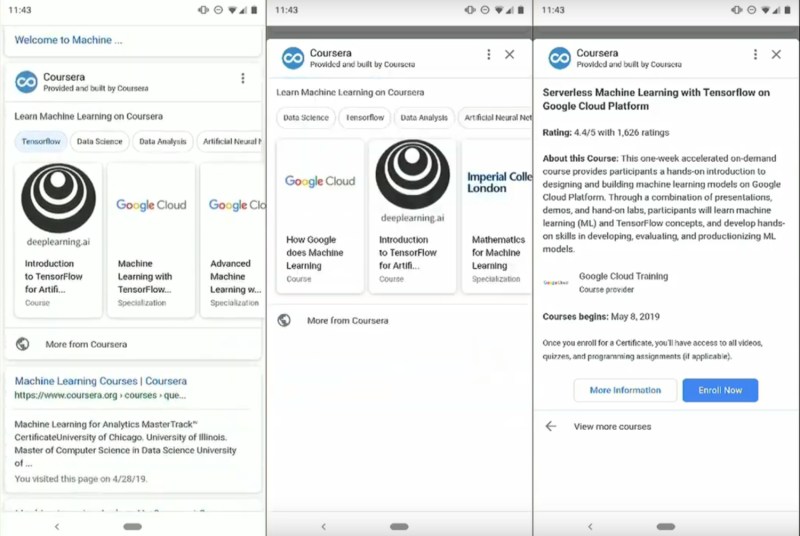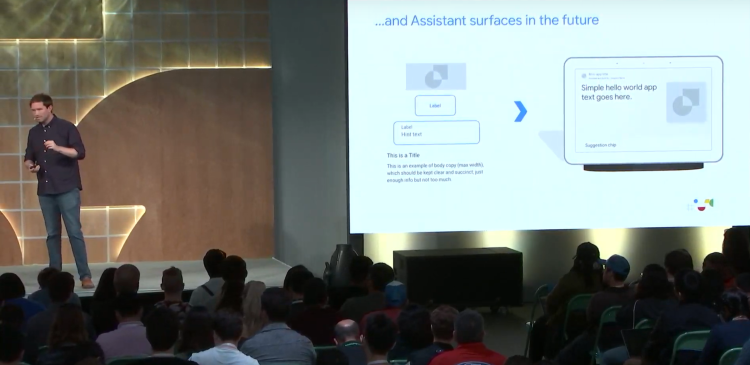During the Tuesday keynote that kicked off Google’s I/O 2019 developer conference, the Mountain View company unveiled a slew of enhancements headed to Google Search on mobile. Building on those announcements, it today detailed in a developer session Mini-apps, which it describes as a “new capability” on Google Search and the Google Assistant that delivers an interactive flow and live content across surfaces.
The early adopter program launches today, and invitations go out in June. Google says it’ll be open to new submissions for a limited time to “assess the suitability of Mini-apps for developers and users.”
“These interactive, app-like experiences help users find the information they’re searching for more quickly,” said Google Search product manager Allen Harvey. “They’re designed to be able to fit the needs of the users you want to engage … [and they’re] experience[s] for users that puts your best foot forward.”

June 5th: The AI Audit in NYC
Join us next week in NYC to engage with top executive leaders, delving into strategies for auditing AI models to ensure fairness, optimal performance, and ethical compliance across diverse organizations. Secure your attendance for this exclusive invite-only event.
When Mini-apps roll out to Search and Google Assistant, they’ll appear on queries that include the name of the app provider (such as “[brand name] machine learning courses”) and they’ll take and respond to input in-line. They’ll dynamically update to show live content as it becomes available, and they’ll adapt to smart displays like Google’s Home Hub automatically, optimized for touch.
For instance, a Mini-app from an online course provider like Coursera might surface popular courses on the first page, and fill the subsequent pages with class descriptions and enrollment deadlines. It might even let users enroll in classes directly from the Mini-app, or show a full carousel of offerings directly in Search.
Meanwhile, a shipping company’s Mini-app could track a packing number, which would appear in results. If there’s an exception in the package’s shipping journey, users could click through to learn more about it.
In the Actions on Google Console, developers can create Mini-app configurations, define the user interface for each surface (using templates with labels), set up triggering, and specify the location of the webhook (which powers dynamic updates). Google is providing APIs and infrastructure to support the content populating them.
Harvey says that Mini-apps can’t request personally identifiable information from users, and “must closely align with the organization’s primary purpose.” They also can’t contain content that’s “obscene, profane, hateful, harrassing, sexually explicit, misleading, or graphically violent,” and must not “promote dangerous or illegal activities”; deceive or mislead users; impersonate any organization; or misrepresent their ownership, affiliation, or primary purpose.
“Mini-apps must help users find information more quickly or accomplish a task more easily,” he said.


